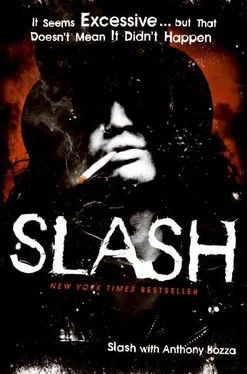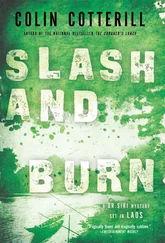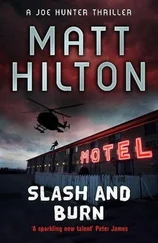All things considered, I stand by my decision, and I stand by the way I did it. Even my dad had told me earlier on, when I was in a state of duress, “Don’t go down with the ship.” I consider leaving GN’R one of the smartest decisions I’ve ever made. There’s no doubt that if I’d stayed with the band under those circumstances I’d surely be dead by now because of too much unnecessary drama. I definitely would have found junk again or it would have found me. If I knew then what I know now, had I been more experienced and more self-protective and more suspicious of the players involved—and I’m not even talking about Axl so much as the people he hired to guide him through this—it might have been handled differently. He hired people who had nothing but making money off of him in mind. If it had been otherwise, or if he and I had been able to discuss it face-to-face, there might have been a greater degree of preservation in regard to our mutual interests as a band. But I don’t believe in “ifs.”
It just wasn’t meant to be. The road that Axl chose to travel forced me away. And once I left, Duff was next—he split of his own accord less than a year later. Not too long after that, Matt got fired. Apparently, he stood up for me when I was slandered at rehearsal and that was the end of him.
By 1998, Axl was the only one of the original five still in the “band” he’d legally arranged to be able to call Guns N’ Roses. By then, Izzy had released a handful of solo albums and toured the world and Gilby had done the same. Duff had formed a new band and put out two records, and I had, too: my second incarnation of Snakepit was alive and well. Matt, for his part, had rejoined the Cult, recorded a record, and was on tour. Steven was crippled by drug addiction, but Axl didn’t have that excuse. I found it morbidly ironic that, out of all of us, the one guy who’d basically browbeat and pressured us into submission into retaining the name had done nothing much with it whatsoever at that point.
IN 1996 IMMEDIATELY FOLLOWING MY last days win GN’R, I did everything I could to stay inspired by music. It was the best way for me to cure my disillusionment with what had become of my band. I toured the world with players as skilled and diverse as could be and I learned as much as I could from all of them. I went to Japan for two weeks with Nile Rodgers and the original lineup of Chic—and that was one hell of a musical education.
I have all the respect in the world for Nile; we had worked together on the soundtrack for Beverly Hills Cop III, so when he called me to go out on tour with Chic, there was no way I was turning him down. He had gathered all of the original players: Omar Akeem, Bernie Worrell, Bernard Edwards, and at least one of the original background singers. They had Stevie Winwood, Simon Le Bon, Sister Sledge, and me out with them for the duration, making cameo appearances during their set.
At rehearsal down at S.I.R. in NYC, during one of the jams I did a dive bomb kind of thing with my Les Paul (this is where that aforementioned crack happened), which is when you push the back of a guitar’s head stock forward while pushing the lower part of the neck, where the neck and the body meet, inward instead of using a tremolo bar. I snapped the neck of my guitar, which flew up and hit me square in the face. It felt like I’d been smashed with a baseball bat: when it popped it sounded like an M-80 and it put a huge hole in my top lip. Someone was videotaping the session that day and I’d love to see an instant replay of that. The wound it left behind was the size of a nickel.
The sound alone caused everyone to stop playing and turn my way. And there I was with one half of my guitar in one hand, the other half in the other, with blood pouring down my chin, neck, and chest. I was dazed; they were all pointing at me and I had no idea what they were talking about. Being that I was in NYC, it was either wait for three hours to be seen by an ER doctor—or not. I opted to go back to the Paramount Hotel, where I sat at the Whiskey Bar with a bag of ice on my face and a bottle of Jack in front of me until I got on the plane with everyone else the next day.
Meanwhile, Adam took my guitar to a repairman to see if it could be fixed, and when I saw him on the way to the gate he told me that his buddy had managed to glue it back together.
“I did my best,” he said. He looked pretty tired. “It’s kind of a Frankenstein but it looks like it’s going to work.”
I’d like to take a moment to let Adam Day, my tech for the past nineteen years, know right now just how much I love him. There had been many times before that I’d felt as much, and many times since, but I’d like to give him the credit he deserves for doing what he did in this instance. That thing had broken to the point of no return, at least I thought so, but he stayed up all night getting it fixed, and to his credit, from that point forward, that guitar has sounded better than it ever did before.
THAT JAPANESE TOUR WAS JUST GREAT; every show was an event. The band was an amazing group of players, so it was a real learning experience and a lot of fun. I had a fling with one of the backup singers who was really hot. The very last night of the tour I was sitting with her and a few other girls in the balcony of this club celebrating. Bernard Edwards was there with us hanging out, but he was tired and left us a bit early; security escorted him to his room.
The next morning he was found dead on his couch as a result of severe pneumonia. When I got the call it was one of the most surreal moments of my life. “I was just with him a few hours ago!” I said. I really looked up to Bernard as a musician and a person. He was the coolest, smoothest, most gentle guy. He’d been a good friend, taking me under his wing during that tour, which was wild considering that I was a stranger in a strange land, jamming with all of these seasoned session pros, and Bernard didn’t even know that much about me or my music. On that tour he didn’t seem like he had any health issues or anything wrong with him at all; he just died peacefully in his sleep. It was a huge shock for Nile because Bernard was his writing partner and closest friend, and they’d just repaired their friendship after a long split. They had just gotten the band back together; they had all of these plans to record and embark on a new phase. Nile was in shock. Everyone was: we left one another in Japan and saw one another again at Bernard’s funeral in Connecticut.
I CONTINUED TO FIND INSPIRATION BY pushing myself to do projects outside of my expected range, one of them being the music for the soundtrack to the Quentin Tarantino–produced film Curdled . When Miramax asked me asked me to do it, I immediately agreed because I’m such a big fan of his. The movie is great; it’s about a cleanup crew that comes in after forensics has finished gathering evidence to clean up crime scenes. They find themselves cleaning up after a serial killer who targets rich women, and one of them—this perfectly nice girl—becomes obsessed with the killer and begins keeping a scrapbook of his murders. It gets a lot more intense from there.
I met Quentin and he told me all about the movie and I started writing music that was inspired by the film’s main character, Gabriella, and the actress who played her, Angela Jones. Angela appears to be Latin, but she’s a white girl from Pittsburgh and I’d had a crush on her since the moment I saw her in Pulp Fiction: she played the cabdriver who drove Bruce Willis to the hotel after the fight. I put hours into working out the music, which is instrumental, all acoustic, eclectic, and flamenco influenced. I recorded the instrumental stuff with Jed Leiber, who is a great engineer I know from L.A.
Читать дальше
Конец ознакомительного отрывка
Купить книгу




![Сол Слэш Хадсон - Slash. Демоны рок-н-ролла в моей голове [litres]](/books/387912/sol-slesh-hadson-slash-demony-rok-n-thumb.webp)


